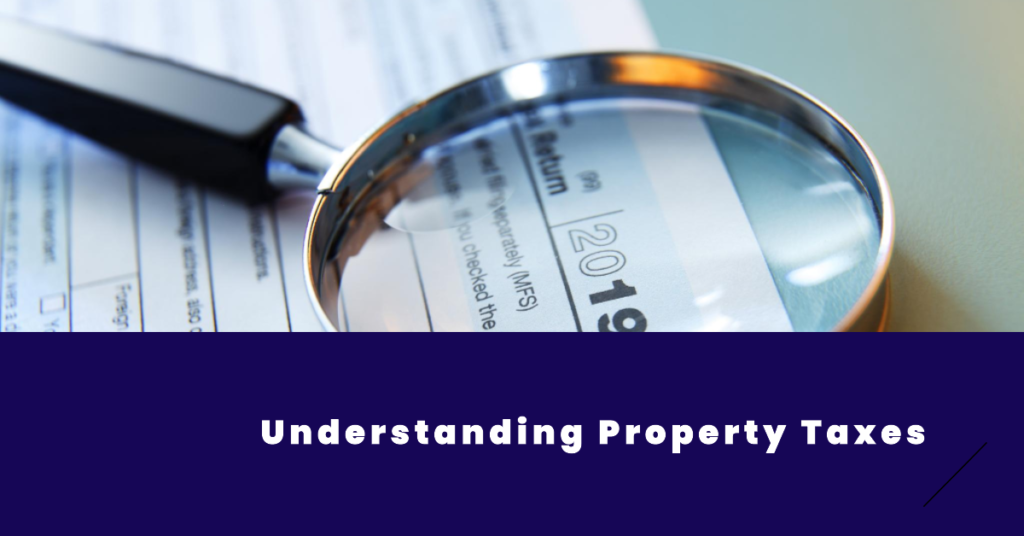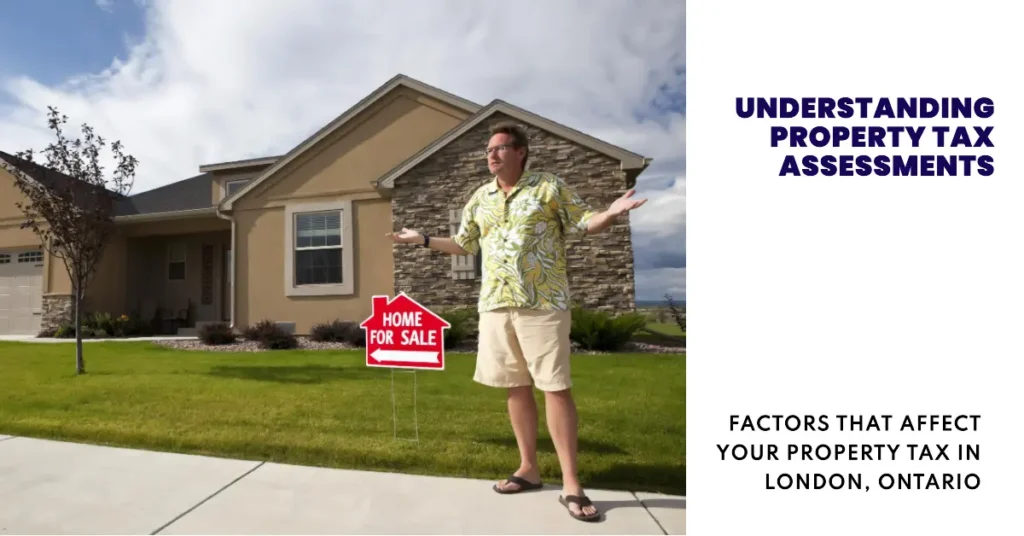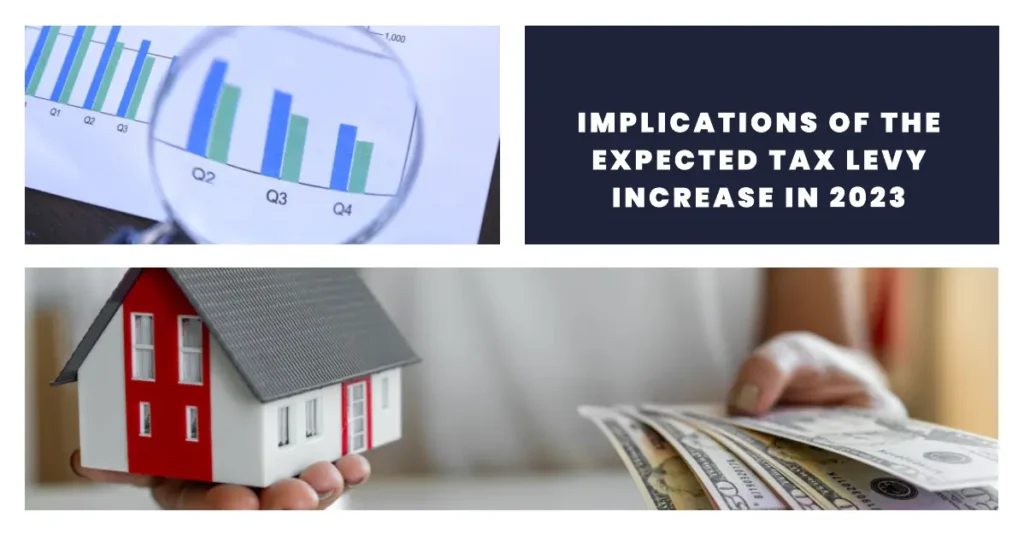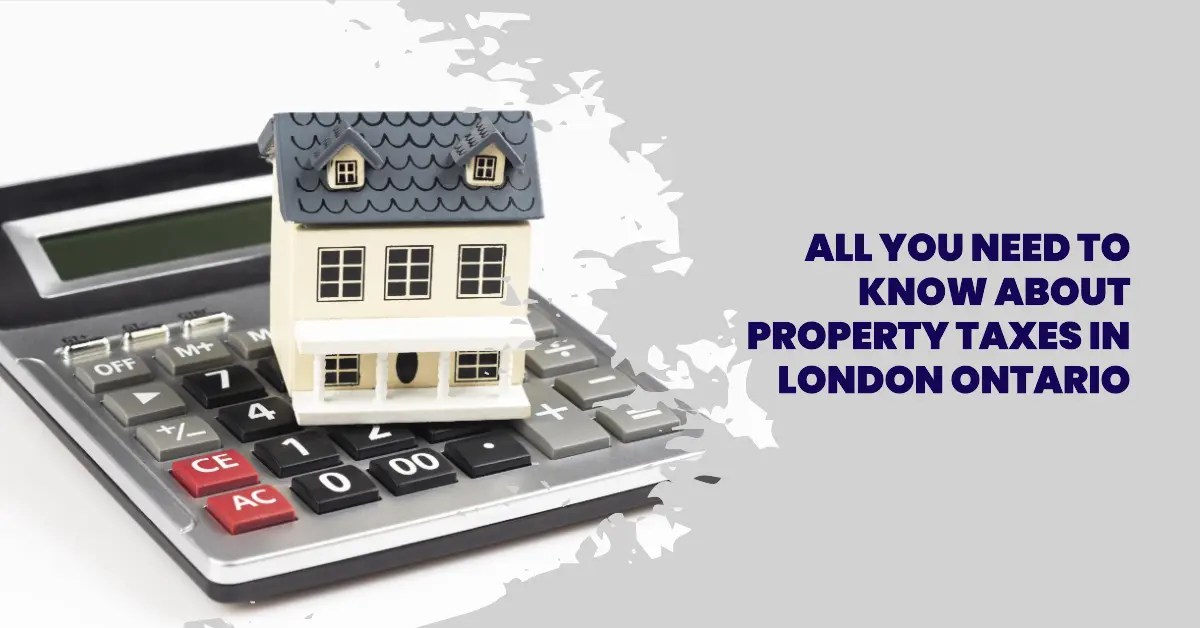Owning residential properties in London, Ontario comes with the responsibility of paying property taxes. Landlords are required to pay taxation on their properties, including those with a mortgage.
It’s not just a financial obligation; it’s an investment in the local community. Property taxes play a crucial role in funding essential government services and maintaining infrastructure for all residents.
Whether you’re a homeowner, landlord, or investor in residential properties, understanding the ins and outs of property taxes is vital for maximizing rental income and managing your estate.
1. How Property Taxes are Calculated

Property taxes in London, Ontario are determined based on the assessed value of the property. The Municipal Property Assessment Corporation (MPAC) is responsible for assessing the value of properties using various factors such as location, size, and condition. Once the assessed value is determined, the tax rate is applied to calculate the amount owed.
1. Assessed Value by MPAC
The assessed value of a property plays a crucial role in determining property taxes. MPAC evaluates each property based on its characteristics and compares it to similar properties in the area. Factors such as location, size, age, and condition are taken into account during this assessment process. The goal is to determine an accurate estimate of how much the property would sell for on the open market.
2. Tax Rate Calculation
Once MPAC determines the assessed value of a property, it is multiplied by the tax rate set by the municipality to calculate property taxes owed. The stamp duty tax rate represents how much tax you have to pay for every dollar of your assessed property value, regardless of your income or residence.
3. Annual Tax Bill
Your annual property tax bill is calculated by multiplying your assessed value by the current tax rate. This bill covers various municipal services such as garbage collection, road maintenance, parks, and public schools. It’s important to note that your tax bill may vary from year to year due to changes in assessments or adjustments made by local authorities.
3. Budget Process
The calculation of property taxes is part of a larger budget process undertaken by municipalities each year. Local government officials evaluate community needs and set a budget accordingly. This budget includes expenses for essential services and infrastructure development which are funded through property taxes and other revenue sources.
2. Understanding the Tax Levy Increase in 2023

In 2023, property owners in London, Ontario can expect an increase in their tax levy. This means that the amount of money collected through property taxes will be higher than before. The purpose of this increase is to meet the growing demands for public services and make improvements to the city’s infrastructure.
The anticipated tax levy increase is necessary to ensure that essential services such as schools, hospitals, roads, and parks can continue to operate effectively. As the population grows and new developments are made, more resources are needed to maintain and enhance these services.
For homeowners in London, this potential change in property tax bills should be taken into consideration when planning their finances. It’s important to be prepared for possible amendments to your tax payments and your local accountant in London can help you with this preparation. Here are a few points to keep in mind:
- Stay informed: Keep an eye out for any official announcements or updates regarding the tax levy increase from the local government or municipal authorities.
- Budget accordingly: Consider adjusting your budget to accommodate potential changes in property taxes. Plan ahead by setting aside some funds specifically for this purpose.
- Seek guidance if needed: If you have any concerns or questions about how the tax levy increase may affect you financially, don’t hesitate to reach out to professionals such as accountants or financial advisors who can provide personalized advice.
Remember that while an increase in property taxes may seem burdensome at first glance, it plays a crucial role in maintaining and improving the quality of life for residents of London, Ontario. By contributing our fair share through property taxes, we help ensure that our community continues to thrive.
3. Overview of Property Tax Rates in London, Ontario

Property tax rates in London, Ontario can vary depending on several factors. These include whether the property is classified as residential or commercial and its location within the city. The rates are set annually by the city based on budgetary requirements and other considerations.
Understanding how property tax rates work is important for property owners to grasp how they impact their overall tax obligations. Let’s take a closer look at some key points related to property tax rates in London, Ontario:
Rates
- Property tax rates are the percentage of a property’s assessed value that must be paid as taxes.
- Residential properties typically have lower tax rates compared to commercial properties.
- The rate for each classification (residential or commercial) is determined by the municipality.
- The specific rate can also vary based on the location within London.
It’s essential to note that property taxes contribute to funding various municipal services, such as schools, libraries, police and fire departments, and infrastructure development. Higher property tax rates may indicate better access to these services but can also result in increased financial burdens for property owners.
4. Factors Affecting Property Tax Assessments in London, Ontario

Several factors can influence property tax assessments in London, Ontario. It’s important for homeowners to understand these factors as they can have a significant impact on their property taxes. Let’s take a closer look at some of the key considerations.
1. Market Conditions
The state of the real estate market plays a crucial role in determining property tax assessments. When the market is booming and property values are rising, it’s likely that assessments will also increase. On the other hand, during a downturn in the market, assessments may be lower. It’s essential for homeowners to stay informed about current market conditions to anticipate potential changes in their assessments.
2. Changes to the Property
Any renovations or additions made to a property can result in higher tax assessments. If you decide to upgrade your home by adding extra rooms or making significant improvements, it’s important to consider how this might impact your assessment and subsequent property taxes. These changes are typically assessed by municipal officials who determine if they warrant an increase in value.
3. Staying Informed
To navigate property tax assessments effectively, homeowners should stay informed about these factors. By keeping up with local real estate trends and understanding how changes to their properties can affect assessments, homeowners can better anticipate potential increases or decreases in their taxes.
Understanding the factors that influence property tax assessments is crucial for homeowners in London, Ontario. By staying informed about market conditions and being aware of how changes made to their properties can impact assessments, homeowners can better manage their finances and plan accordingly.
5. Implications of the Expected Tax Levy Increase in 2023

The anticipated tax levy increase in London, Ontario, is likely to have significant implications for homeowners and businesses. This increase may result in higher property tax bills, affecting household budgets and financial planning for property owners.
Understanding the implications of this tax levy increase is crucial for individuals to make informed decisions about their properties. Let’s take a closer look at what these implications might be:
1. Higher Property Tax Bills
- The expected tax levy increase could lead to higher property tax bills for both homeowners and businesses.
- This means that property owners may have to allocate more funds toward paying their taxes, potentially impacting their overall financial situation.
2. Impact on Household Budgets
- With an increase in property taxes, homeowners may need to adjust their household budgets accordingly.
- This could mean cutting back on other expenses or finding ways to generate additional income to cover the increased tax liability.
3. Financial Planning Considerations
- Property owners will need to factor in the potential increase in property taxes when making long-term financial plans.
- It’s important to assess how this change will affect savings goals, retirement plans, and any other financial commitments.
4. Decision-Making for Property Owners
- Understanding the implications of the tax levy increase can help property owners make informed decisions about their properties.
- They may consider options such as seeking tax relief programs or exploring ways to offset the increased costs through improvements that could enhance their property’s value.
It is essential for homeowners and businesses alike to stay updated on any changes in property taxes and be proactive in managing their finances accordingly. By being aware of these implications and taking appropriate action, individuals can navigate the impact of the expected tax levy increase effectively.
6. Navigating Property Taxes in London, Ontario
Congratulations! You’ve now gained a solid understanding of property taxes in London, Ontario. Armed with this knowledge, you can make informed decisions about your finances and plan for the future. Remember, property taxes in London Ontario are an essential part of homeownership, and it’s crucial to stay updated on any changes that may affect you.
Stay on top of your bookkeeping in London Ontario to ensure you’re prepared for any tax-related updates for your business.
To ensure you’re well-prepared, take advantage of online resources provided by the City of London. They offer detailed information about property tax assessments, payment options, and important dates to remember. Stay proactive by regularly reviewing your assessment notices and reaching out to the city’s tax department if you have any questions or concerns. By staying informed and engaged in the process, you can navigate property taxes confidently.
FAQs
1. How often are property taxes assessed in London, Ontario?
Property taxes in London, Ontario are assessed annually. The Municipal Property Assessment Corporation (MPAC) evaluates properties based on their market value as of January 1st each year.
2. Can I appeal my property tax assessment if I believe it is incorrect?
Yes! If you believe that your property tax assessment is incorrect or unfair, you have the right to appeal it. Contact MPAC to initiate the appeals process and provide supporting evidence for your case.
3. Are there any exemptions or rebates available for property owners in London?
Yes, there are several exemptions and rebates available for eligible property owners in London. These include programs such as the Vacant Unit Rebate Program for commercial properties and various rebates for charitable organizations.
4. What happens if I don’t pay my property taxes on time?
If you fail to pay your property taxes on time in London, Ontario, interest will be charged on the outstanding amount. After a certain period of non-payment, the city may place a lien against your property or take legal action to collect the unpaid taxes.
5. Can I prepay my property taxes in London, Ontario?
Yes, you have the option to prepay your property taxes in London. Prepayment can be made towards future tax bills or to reduce the principal amount of your mortgage. Contact your financial institution or the City of London for more information on how to proceed with prepayments.


